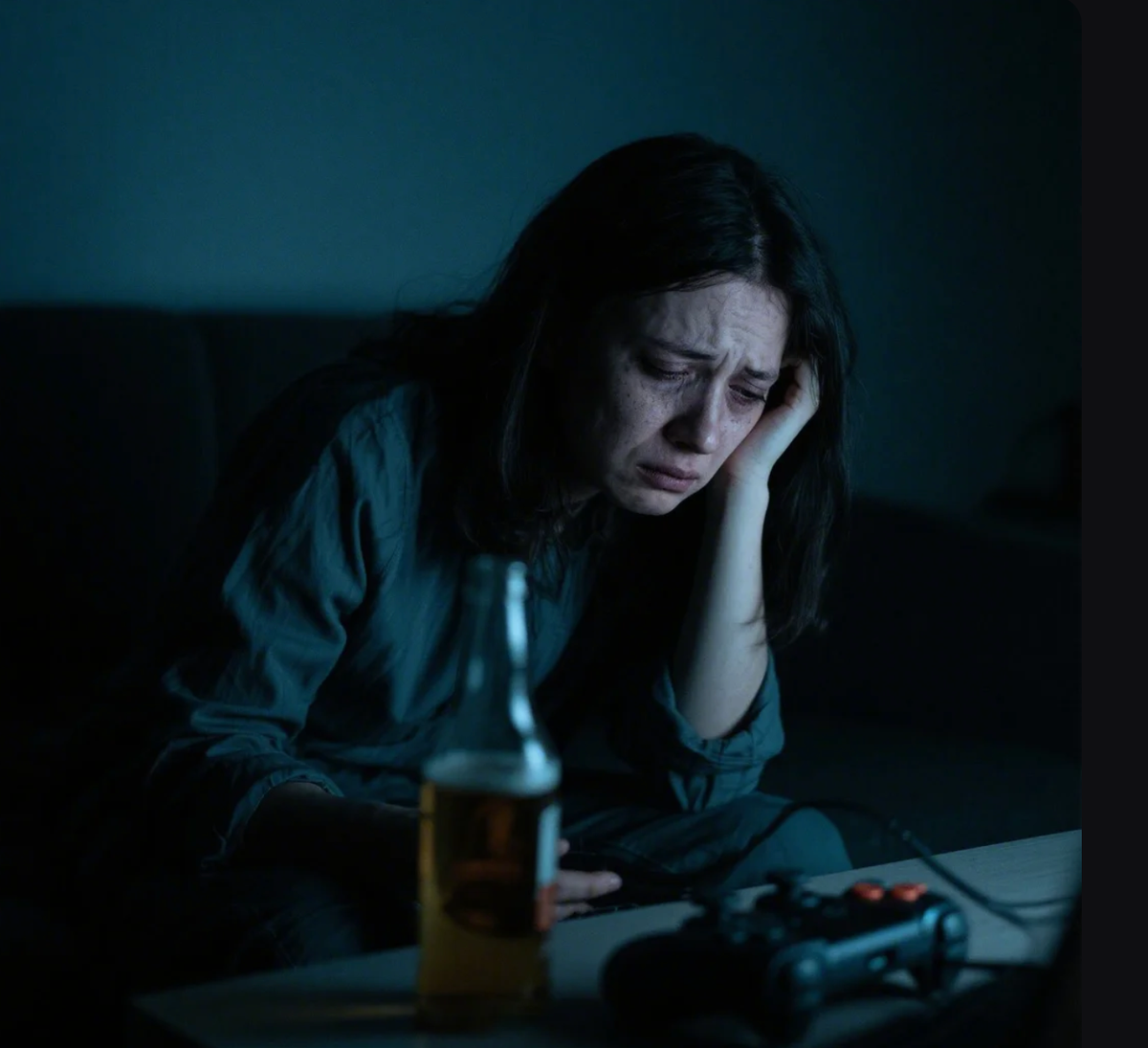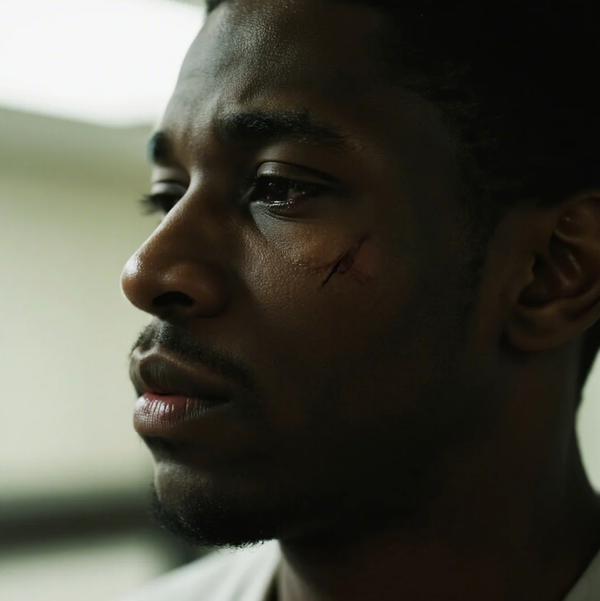Dysfunctional Grief Examples: What It Looks Like and How to Cope
Grief left unprocessed keeps hold of you. When this happens, it's often called dysfunctional or complicated grief. In this post, we’ll look at real-life examples of dysfunctional grief, why it happens, and 5 ways to start healing.

First, a 10-second overview for readers in a rush:
Examples of dysfunctional grief can include: chronic emotional numbness, harsh self-judgment (I can't believe I still feel bad, why can't I move on?"), and avoidance mechanisms such as drinking, gaming, or shopping. Grief can get stuck in your system. Learn how to spot the signs and process it in more manageable doses.
Loss of a loved one. Loss of a job. Loss of health.
All of these (and other) life events can cause the feeling of grief.
It's a normal, albeit painful, part of being human.
However, grief left unprocessed keeps hold of you. When this happens, it's often called dysfunctional grief or complicated grief.
This type of grief may fade a little but not truly heal over time. It feels like you're trapped in a "doom cycle" of anger, guilt, or sadness.
In this post, we’ll look at real-life examples of dysfunctional grief, why it happens, and 5 ways to start healing.
🔍 What Is Dysfunctional Grief?
Dysfunctional grief is when mourning doesn't follow the usual path and can affect daily life in serious ways. It may last longer than normal (six months to two years is often viewed as the norm, though this is challenged).
Some people may:
- Avoid anything that reminds them of the person or thing they lost
- Continually blame themselves or feel guilty for no reason
- Struggle to find moments of joy months or years later
- Feel numb or use coping mechanisms to numb out
This kind of grief may need more than time. It goes without saying, but please don't hesitate to seek out more robust support or therapy to help you during this phase of your life.
🧠 Why Does Dysfunctional Grief Happen?
Many things can cause grief to become complicated.
Some common triggers include:
- Sudden or violent death
Grief may be harder when there was no time to say goodbye. - Close or dependent relationships
Losing someone you relied on daily can leave a huge gap. - Lack of support or understanding
If others expect you to have "moved on", grief may go inward and get stuck. - Mental health issues
Anxiety, PTSD, or depression can mix with grief and make it harder to heal.
🚫 Avoidance Patterns: When Coping Becomes Escaping
Humans use distractions as a way to suppress and avoid pain. So it's no wonder that this is common with grief too, perhaps the most intense form of emotional pain.
Sometimes the person is aware they're avoiding/distracting from grief and sometimes they're not - it just seems to happen automatically.
These behaviours may offer short-term relief and can be used at times, but they risk delaying healing and making things worse over time.
Common Avoidance Patterns:
- Alcohol or Drug Use
Drinking or using substances can numb feelings. But it often leads to worse depression, health problems, and isolation. - Excessive Video Gaming or Binge-Watching
Escaping into digital worlds may block out sadness. Nevertheless, it also keeps people from processing real-life emotions. - Shopping Sprees or Overspending
Buying things can feel exciting and immersive. However, it’s often followed by guilt and financial insecurity. - Overworking or Staying “Too Busy”
Some people fill every minute with tasks and activities so they don't have time to reflect deeply on their grief.
These behaviors are not “bad" per se. They are, in many ways, self-protective. Your ego detects pain and is trying to help you run away from it. But the ego struggles to grasp that the longer-term healing of grief involves facing it head on.
📋 Think You May Have Dysfunctional Grief? 5 Ways To Move Through It, Bit By Bit
Being stuck in grief now, or for many years, doesn't mean you have to be stuck forever.
Here are five ways that may help you to start moving forward.
1. Talk to a Therapist
Therapists trained in grief can help you unpack painful feelings. Look for someone who uses Complicated Grief Therapy (CGT) or Cognitive Behavioral Therapy (CBT).
✅ Tip: You can find a licensed therapist via Psychology Today.
2. Join a Grief Support Group
Talking with others who understand can ease loneliness and self-judgment. Look for online or in-person groups focused on managing loss.
✅ Tip: Sites like GriefShare offer local meetings and online forums.
3. Create a Grief Ritual
Marking your loss with a ritual can help with acceptance. You might write a letter, plant a tree, or create a memory box. Anything that helps you express the grief outwardly in your environment rather than keeping it suppressed inside.
✅ Tip: Rituals help the brain process loss and gradually let go in a healthy way.
4. Limit Isolation
Grief often makes people withdraw out of fear, guilt, or not wanting to be a burden. But too much alone time can make things worse.
Aim for small doses of social connection at this time rather than pressuring yourself to attend big, busy events.
✅ Tip: Set small goals like texting a friend, walking outside, or attending one event per week.
5. Set Tiny Healing Goals
Healing doesn’t mean “moving on.” It means learning to live with loss.
✅ Tip: Try this weekly challenge:
- Week 1: Talk about your loved one with a friend or out loud to yourself
- Week 2: Visit a meaningful place
- Week 3: Share one good memory online or in a journal
⚠️ Signs It’s Time to Get Help
If any of the signs below feel familiar, reach out to a mental health professional:
- You find yourself unable to break free from harmful coping mechanisms
- You have trouble getting out of bed, eating, sleeping, or working
- You are experiencing suicidal thoughts/plans
Crisis Help: In the UK, you can contact the Samaritans 24/7. In the US,, you can call or text the 988 Lifeline anytime.
✅ Summary: Dysfunctional Grief Is Real (and Treatable)
Dysfunctional grief isn't weakness. It’s a real and painful experience. While it can feel like it may never go away and you're going to be stuck forever, healing is possible.
Self-care, journalling, rituals, therapy, support groups. If one form of grief expression isn't helping, give something else a try. Every small step counts.
"Grief is not a sign of weakness, nor a lack of faith. It is the price of love."
― Donna VanLiere, The Christmas Light
Need some 1:1 help to process emotions in a safe environment? Subscribe to a plan at SuppressedEmotions.com.
Written by Declan Davey - Health Writer & Psychotherapist





